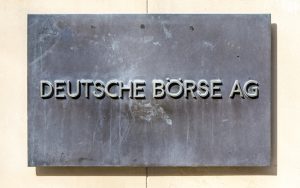Buy and sell digital currency
Coinbase is the easiest and most trusted place to buy, sell, and manage your digital currency.
Create your digital currency portfolio today
Coinbase has a variety of features that make it the best place to start trading

Manage your portfolio
Buy and sell popular digital currencies, keep track of them in the one place.

Recurring buys
Invest in digital currency slowly over time by scheduling buys daily, weekly, or monthly.

Vault protection
For added security, store your funds in a vault with time delayed withdrawals.

Mobile apps
Stay on top of the markets with the Coinbase app for Android or iOS.

The most trusted digital currency platform
Here are a few reasons why you should choose Coinbase
Secure storage
We store the vast majority of the digital assets held on Coinbase in secure offline storage.
Protected by insurance
Digital currency stored on our servers is covered by our insurance policy.
Industry best practices
We take security seriously, and have built a reputation of being the most trusted in the space.
‘We’re Deep at Work’ on Bitcoin: German Stock Exchange Deutsche Boerse

German stock exchange operator Deutsche Boerse is “deep at work” on evaluating whether to offer bitcoin futures and other cryptocurrency-related products, one of the firm’s top executives said on Wednesday.
Speaking at an industry even in London sponsored by the Association for Financial Markets, Deutsche Boerse head of clients Jeffrey Tessler said that the firm is holding serious discussions about listing bitcoin products, though it still has reservations about the nascent asset class.
“Before we move forward with anything like Bitcoin we want to make sure we understand the underlying transaction which isn’t the easiest thing to do,” Bloomberg quotes him as saying, “we want to understand the volatility and make sure clients are in line and make sure regulators are in line.”
“We are deep at work with it,” he added.
Tessler said that the company is “not at the same stage” in its comfort level with bitcoin as CME, its Chicago-based rival and the world leader in regulated bitcoin futures trading. CME has also said that it is gauging client interest in an ethereum futures product, and its recent launch of an ether price index has laid the groundwork for that development.
But while CME and fellow Chicago exchange CBOE have seen as much as $670 million in combined bitcoin futures volume during a single trading session, no major European exchange has listed derivatives products for bitcoin or any other cryptocurrency.
As CCN reported, regulated UK trading platform Crypto Facilities has launched futures products for bitcoin, ether, and XRP. Pricing data from the exchange’s bitcoin and ether products is included in CME’s bitcoin and ether reference rate indices. However, these products have yet to catch on at larger venues like Deutsche Boerse.
In the US, meanwhile, the operators of both the New York Stock Exchange (NYSE) and Nasdaq are holding discussions about listing cryptocurrency products, and the NYSE is rumored to be considering whether to launch a full-fledged cryptocurrency exchange.
Deutsche Boerse’s Tessler Says ‘Deep at Work’ on Bitcoin
Deutsche Boerse AG is evaluating whether to offer cryptocurrency products, Jeffrey Tessler, the company’s head of clients, products and core markets, told an industry event Wednesday.
The German company could only look on last year as U.S. rivals Cboe Global Markets Inc. and CME Group Inc. started Bitcoin futures to great fanfare. No major European exchange felt able to follow suit, mindful of regional authorities’ cautious approach to regulating the nascent market.
“Before we move forward with anything like Bitcoin we want to make sure we understand the underlying transaction which isn’t the easiest thing to do,” Tessler said at an event in London organized by the Association for Financial Markets in Europe. “We are deep at work with it,” Tessler said, acknowledging that the group is “not at the same stage” as CME.
Before moving forwards with anything like Bitcoin, Tessler said, “we want to understand the volatility and make sure clients are in line and make sure regulators are in line.”
Tag: Deutsche Boerse

Bitcoin in Brief Thursday: Main Street Adopts Bitcoin Ahead of Wall.
in case you missed it
Remembering Satoshi’s Vision — As it Was Written. Satoshi Nakamoto left the community in 2010, and no one has heard from the anonymous creator of bitcoin ever since. At the moment the bitcoin community has split into two factions due to the scaling debate, that coincidently started the same year Satoshi left… read more.
Press releases

PR: DIWtoken.com – Alpha Launch on Testnet Before the End of.
PR: Former Head of Strategy & Operations Consulting at KPMG Joins.
PR: Cryptocurrency Payment Service Platform Sopay Launches Crowdfunding on the LEEKICO.
Latest Comments
It can be stressful seeing as bitcoin is crypto currency but it is possible. In recent times, the.
So many words. Why not just tell me how it differs, and in what way the deposits = loans + reserves.
Thanks for this news regarding Bithumb. I have not used their exchange but the new policies such as.
Same Issue in Switzerland. Not a single bank is opening accounts for any company blockchain or.
Roger That!
The latest episode of the Bitcoin (BCH) Weekly Roundup. Roger Ver speaks with one of our lead developers Corbin to talk you through all the latest Bitcoin news and happenings within the Bitcoin Cash Community. Subscribe to our Youtube channel here.
we are hiring

News.Bitcoin.com is Hiring Editorial Staff – In Tokyo, Stockholm and Your Town. Are you an experienced news editor or a news reporter with a nose for crypto? We are on a roll – increasing our readership every day – serving millions of readers each month… read more.
Did You Miss The Tokyo Conference?

Watch the talks from the Satoshi’s Vision Conference, that took place in Tokyo, March 23-25.
Listen to The Bitcoin.com Podcast Network

The Bitcoin.com Wallet: Available on all platforms
Check out all the latest features and create your wallet today! https://t.co/CNaJZzHtaZ pic.twitter.com/huq84amUJG
Download the Bitcoin.com Wallet right to your device for easy and secure access to your bitcoins. Perfect for beginners, the Bitcoin.com Wallet makes using and holding bitcoins easy. No logins required.
Get the latest price charts, statistics and our news feed on your site. Check out our widget services.
Most Commented This Week

We also deliver bite-sized news to your favourite messaging app; join our Telegram channel.
Germany’s Börse Stuttgart Stock Exchange to Integrate Bitcoin Bug Trading App

Forward-thinking financial institutions are not oblivious to the fact that bitcoin and the nascent asset class it represents may indeed be the future of finance. In a bid for the future, Börse Stuttgart, the second largest stock exchange in Germany and the ninth largest in Europe, has launched its cryptocurrency trading app.
Börse Bison
The fintech arm of Germany’s second-largest stock exchange is putting the finishing touches on its cryptocurrency app and has promised users it would go live before the end of 2018.
Sowa Labs, a subsidiary of the exchange, gave clients a sneak peek into the app on April 13, 2018, and has declared it will be available for customers later in September. The virtual currency trading mobile app will be called Bison.
Once available, interested users will be able to download it from their app stores free of charge. For starters, Bison will support only a few established cryptos such as bitcoin, ether, ripple, and litecoin. However, the developers have assured users that more altcoins will be added to the platform shortly.
According to its developers, the one feature that sets Bison apart from other apps in the crypto trading ecosystem is that it offers users a no-fee trading experience. A prototype of the Bison app will be on display during a trade show in Stuttgart.
Germany Leading the Euro Crypto Movement
Apart from offering zero fees to traders, if the Bison app successfully goes live in September 2018, Börse Stuttgart will add its name to history as the first stock exchange to offer clients cryptocurrency trading services.
Bitcoin in Brief Thursday: Main Street Adopts Bitcoin Ahead of Wall Street
In today’s edition of Bitcoin in Brief we feature stories that show how fast and nimble banks that support cryptocurrency-based businesses are benefiting at the expense of the larger players that have yet to enter the market, how more financial institutions want to join and how crypto ventures are making it easier for them.
Small Banks Love Bitcoin
With major US banks too afraid to serve all American bitcoin users and businesses, smaller banks are picking up the slack and making a fortune doing so. New York-based Metropolitan Bank for example was able to build up deposits from crypto business without building costly new branches, and more than triple yearly fee income in 2017, largely from crypto transactions.
And San Diego-based Silvergate Bank nearly doubled its assets to $1.9 billion in 2017, mainly because of 250 cryptocurrency-related businesses the privately-held company now serves. Silvergate Chief Executive Alan Lane told to the Wall Street Journal that “At what point as a banker do you pull your head out of the sand? Every banker should be learning about the technology.”
Deutsche Börse “Deep at Work” With Bitcoin
 Deutsche Börse AG, which operates the Frankfurt Stock Exchange, is actively examining its options for launching cryptocurrency derivatives. This was revealed in London on Wednesday by Jeffrey Tessler, CEO of the post-trade services provider owned by Deutsche Börse Clearstream and member of the group’s executive board, responsible for Clients, Products & Core Markets, at an event organized by the Association for Financial Markets in Europe.
Deutsche Börse AG, which operates the Frankfurt Stock Exchange, is actively examining its options for launching cryptocurrency derivatives. This was revealed in London on Wednesday by Jeffrey Tessler, CEO of the post-trade services provider owned by Deutsche Börse Clearstream and member of the group’s executive board, responsible for Clients, Products & Core Markets, at an event organized by the Association for Financial Markets in Europe.
“Before we move forward with anything like Bitcoin we want to make sure we understand the underlying transaction which isn’t the easiest thing to do,” explained Tessler. “We are deep at work with it,” however, “not at the same stage” [as the CME]. “We want to understand the volatility and make sure clients are in line and make sure regulators are in line.”
Huobi Pro Launches Crypto Market Index
 Huobi Pro has announced on Wednesday the launch of a new benchmark called the Huobi Main Force Index. The company explains that it will select 10 top traded digital assets with high market capitalization and strong liquidity that reflect the market performance of Huobi Pro, in terms of USDT. The assets will be divided into four categories: Coins, Platforms, Applications and Physical Assets tokens, depending on the transaction volume value of the previous quarter. Huobi further states that the main force index will be published by Bloomberg and other communication organizations later on, and users may view the index by logging in on their devices.
Huobi Pro has announced on Wednesday the launch of a new benchmark called the Huobi Main Force Index. The company explains that it will select 10 top traded digital assets with high market capitalization and strong liquidity that reflect the market performance of Huobi Pro, in terms of USDT. The assets will be divided into four categories: Coins, Platforms, Applications and Physical Assets tokens, depending on the transaction volume value of the previous quarter. Huobi further states that the main force index will be published by Bloomberg and other communication organizations later on, and users may view the index by logging in on their devices.
“The goal here is to provide a complete and organized tool which will help enhance the overall knowledge of the blockchain industry. We are committed to bringing more insights and data so key stakeholders can make the most knowledgeable decisions when it comes to their investments,” said Leon Li, founder and CEO of Huobi Group.
US Megabanks Less Safe Than Crypto?
 Americans now have a new reason to consider moving their money away from big banks to cryptocurrencies – the expected decision by banking regulators to water down the Volcker Rule, which restricts the ability of banks to engage in proprietary trading with depositor funds. This according to the latest analysis by Weiss Cryptocurrency Ratings. They explain that due to the rule changes, banks will now be able to gamble more freely in a scheme that gives them the quick profits but gives depositors the ultimate risks. In contrast, holders of cryptocurrencies are not exposed to those kinds of risks as they can control their money directly with no custody by third parties and no need to trust a central authority.
Americans now have a new reason to consider moving their money away from big banks to cryptocurrencies – the expected decision by banking regulators to water down the Volcker Rule, which restricts the ability of banks to engage in proprietary trading with depositor funds. This according to the latest analysis by Weiss Cryptocurrency Ratings. They explain that due to the rule changes, banks will now be able to gamble more freely in a scheme that gives them the quick profits but gives depositors the ultimate risks. In contrast, holders of cryptocurrencies are not exposed to those kinds of risks as they can control their money directly with no custody by third parties and no need to trust a central authority.
“With this rule change, the authorities will make it easier for megabanks to take big risks with other people’s money. But they are making the change precisely when global debt levels imply record risks,” the authors argue. “In the future, cryptocurrencies will do such a fundamentally better job as a safe depository of funds it’s difficult to envision a world in which this technology does not become a game-changer for money and banking.”
What do you think about today’s news updates? Share your thoughts in the comments section below.
Images courtesy of Shutterstock.
Do you agree with us that Bitcoin is the best invention since sliced bread? Thought so. That’s why we are building this online universe revolving around anything and everything Bitcoin. We have a store. And a forum. And a casino, a pool and real-time price statistics.
Deutsche Boerse “Deep at Work” on Bitcoin Futures Trading
German stock exchange operator Deutsche Boerse, one of the world's largest trading centres for securities, is “deep at work” on evaluating whether to offer Bitcoin futures and other cryptocurrency-related services, Bloomberg reported, citing Jeffrey Tessler, the company’s head of clients, products and core markets.
Tessler said that the firm is holding serious discussions about listing bitcoin products, though it still has reservations about the young industry. He added, “Before we move forward with anything like Bitcoin we want to make sure we understand the underlying transaction which isn’t the easiest thing to do,” adding that they’re “deep at work,” acknowledging that the group is “not at the same stage” as CME, its Chicago-based rival and currently the world leader in regulated Bitcoin futures trading.
But while CME and CBOE, fellow Chicago exchange, have been known to jump up to USD 670 million in combined Bitcoin futures volume during a single trading session, no major European exchange has listed futures for Bitcoin or any other cryptocurrency.
Meanwhile, regulated UK trading platform Crypto Facilities has launched futures products for Bitcoin, Ethereum, and Ripple, but a company the size of Deutsche Boerse is still to offer such services. On the other side of the pond, the operators of both the New York Stock Exchange (NYSE) and Nasdaq are holding discussions about listing cryptocurrency products, while NYSE parent company ICE is rumored to be launching an actual cryptocurrency exchange.
Bitcoin in Brief Thursday: Main Street Adopts Bitcoin Ahead of Wall Street
In today’s edition of Bitcoin in Brief we feature stories that show how fast and nimble banks that support cryptocurrency-based businesses are benefiting at the expense of the larger players that have yet to enter the market, how more financial institutions want to join and how crypto ventures are making it easier for them.
Small Banks Love Bitcoin
With major US banks too afraid to serve all American bitcoin users and businesses, smaller banks are picking up the slack and making a fortune doing so. New York-based Metropolitan Bank for example was able to build up deposits from crypto business without building costly new branches, and more than triple yearly fee income in 2017, largely from crypto transactions.
And San Diego-based Silvergate Bank nearly doubled its assets to $1.9 billion in 2017, mainly because of 250 cryptocurrency-related businesses the privately-held company now serves. Silvergate Chief Executive Alan Lane told to the Wall Street Journal that “At what point as a banker do you pull your head out of the sand? Every banker should be learning about the technology.”
Deutsche Börse “Deep at Work” With Bitcoin
 Deutsche Börse AG, which operates the Frankfurt Stock Exchange, is actively examining its options for launching cryptocurrency derivatives. This was revealed in London on Wednesday by Jeffrey Tessler, CEO of the post-trade services provider owned by Deutsche Börse Clearstream and member of the group’s executive board, responsible for Clients, Products & Core Markets, at an event organized by the Association for Financial Markets in Europe.
Deutsche Börse AG, which operates the Frankfurt Stock Exchange, is actively examining its options for launching cryptocurrency derivatives. This was revealed in London on Wednesday by Jeffrey Tessler, CEO of the post-trade services provider owned by Deutsche Börse Clearstream and member of the group’s executive board, responsible for Clients, Products & Core Markets, at an event organized by the Association for Financial Markets in Europe.
“Before we move forward with anything like Bitcoin we want to make sure we understand the underlying transaction which isn’t the easiest thing to do,” explained Tessler. “We are deep at work with it,” however, “not at the same stage” [as the CME]. “We want to understand the volatility and make sure clients are in line and make sure regulators are in line.”
Huobi Pro Launches Crypto Market Index
 Huobi Pro has announced on Wednesday the launch of a new benchmark called the Huobi Main Force Index. The company explains that it will select 10 top traded digital assets with high market capitalization and strong liquidity that reflect the market performance of Huobi Pro, in terms of USDT. The assets will be divided into four categories: Coins, Platforms, Applications and Physical Assets tokens, depending on the transaction volume value of the previous quarter. Huobi further states that the main force index will be published by Bloomberg and other communication organizations later on, and users may view the index by logging in on their devices.
Huobi Pro has announced on Wednesday the launch of a new benchmark called the Huobi Main Force Index. The company explains that it will select 10 top traded digital assets with high market capitalization and strong liquidity that reflect the market performance of Huobi Pro, in terms of USDT. The assets will be divided into four categories: Coins, Platforms, Applications and Physical Assets tokens, depending on the transaction volume value of the previous quarter. Huobi further states that the main force index will be published by Bloomberg and other communication organizations later on, and users may view the index by logging in on their devices.
“The goal here is to provide a complete and organized tool which will help enhance the overall knowledge of the blockchain industry. We are committed to bringing more insights and data so key stakeholders can make the most knowledgeable decisions when it comes to their investments,” said Leon Li, founder and CEO of Huobi Group.
US Megabanks Less Safe Than Crypto?
 Americans now have a new reason to consider moving their money away from big banks to cryptocurrencies – the expected decision by banking regulators to water down the Volcker Rule, which restricts the ability of banks to engage in proprietary trading with depositor funds. This according to the latest analysis by Weiss Cryptocurrency Ratings. They explain that due to the rule changes, banks will now be able to gamble more freely in a scheme that gives them the quick profits but gives depositors the ultimate risks. In contrast, holders of cryptocurrencies are not exposed to those kinds of risks as they can control their money directly with no custody by third parties and no need to trust a central authority.
Americans now have a new reason to consider moving their money away from big banks to cryptocurrencies – the expected decision by banking regulators to water down the Volcker Rule, which restricts the ability of banks to engage in proprietary trading with depositor funds. This according to the latest analysis by Weiss Cryptocurrency Ratings. They explain that due to the rule changes, banks will now be able to gamble more freely in a scheme that gives them the quick profits but gives depositors the ultimate risks. In contrast, holders of cryptocurrencies are not exposed to those kinds of risks as they can control their money directly with no custody by third parties and no need to trust a central authority.
“With this rule change, the authorities will make it easier for megabanks to take big risks with other people’s money. But they are making the change precisely when global debt levels imply record risks,” the authors argue. “In the future, cryptocurrencies will do such a fundamentally better job as a safe depository of funds it’s difficult to envision a world in which this technology does not become a game-changer for money and banking.”
What do you think about today’s news updates? Share your thoughts in the comments section below.
Images courtesy of Shutterstock.
Do you agree with us that Bitcoin is the best invention since sliced bread? Thought so. That’s why we are building this online universe revolving around anything and everything Bitcoin. We have a store. And a forum. And a casino, a pool and real-time price statistics.
Bitcoins an der Börse zu verkaufen

Bitcoin Austausch und Steckdosen kann eine sehr bequeme Möglichkeit, Bitcoins zu verkaufen. Diese Webseiten sind online-Dienste, die Bitcoin-Einlagen zu akzeptieren und ermöglichen ihnen, während des Ladevorgangs einer prozentuale Gebühr auf jedem Handel zu verkaufen. Der Nachteil ist, dass die meisten Sie Ihre Identität zu beweisen benötigen und mit einem Bankkonto bezahlen oder Überweisung.
Schritte für den Verkauf von Bitcoins an einer Börse oder Outlet
Um Bitcoins auf den meisten Börsen und Steckdosen zu verkaufen, benötigen Sie eine e-Mail, ein Bankkonto und eine gewisse Menge an Bitcoins. Einige Börsen erfordern auch ein eingescannten Lichtbildausweis vorgelegt werden, sowie Dokumente, die beweisen, Ihre aktuelle Adresse.
Melden Sie sich für ein Konto auf einer Service-Website (siehe das Liste). Sie müssen Ihre e-Mail-Adresse und möglicherweise in Ihrem Land des Wohnsitzes für diesen Schritt bereitstellen. Hinweis: Sie möglicherweise nicht in der Lage, registrieren Sie sich oder tauschen, wenn der Dienst Ihr Herkunftsland nicht unterstützt.
Geben Sie persönliche Informationen, so dass Ihre Identität überprüft werden kann. Die meisten Länder erzwingen Anti-Geld Geldwäsche Bestimmungen (AML/KYC in den Vereinigten Staaten genannt), die erfordern Verdienste um die Identität ihrer Kunden zu überprüfen, bevor sie Geschäfte machen können. Die erforderlichen Informationen sind in der Regel Ihre Adresse, einen Scan Ihren Personalausweis und ggf. Ihre nationalen ID-Nummer.
Warten Sie auf Ihre Identität durch den Dienst überprüft werden. Der Dienst muss überprüfen, ob Ihre Foto-ID nicht gefälscht ist und, dass dein Name auf einer Liste von Terroristen und sanktionierten Personen ist nicht. Sie können auch versuchen, um Ihre Adresse zu verifizieren. Je nach Land und dem Service kann dieser Vorgang überall von wenigen Stunden bis zu ein paar Wochen dauern.
Richten Sie eine Rücknahme-Methode für die nationale Währung, der Sie für Ihre Bitcoins verkaufen möchten. Die verfügbaren Auszahlungsmethoden hängt von der Exchange-Dienst und des Landes. Sie reichen vom Bankkonto Barabhebung, Überweisung, ACH-Überweisung, SEPA-Einzahlung oder Scheck per Post. Die Service-Website sollten detaillierte Anleitungen um einen Abzug oder verknüpfen Ihr Bankkonto mit ihren Dienst.
Hinterlegen Sie Bitcoins mit dem Service. Der Dienst sollte eine eindeutige Bitcoin-Adresse für Bitcoins senden an (in der Regel befindet sich auf einem “Mittel” oder “Einzahlen” Abschnitt auf der Website) anbieten. In der Regel innerhalb von 1 Stunde nach dem Senden der Bitcoins (die Zeit, es in der Regel für 6 Rückmeldungen dauert), werden sie zu Ihrem Konto und bereit, die gehandelt werden gutgeschrieben.
Platzieren Sie eine Sell Order auf die Service-Website für den Betrag von Bitcoins, die, denen Sie loswerden möchten, und den Preis, den Sie bereit sind, pro Bitcoin (a.k.a. eine Limit-Order) zu akzeptieren. Sie könnte auch eine bestellen, eine bestimmte Menge an Bitcoins zum günstigsten Preis verfügbar auf der Grundlage der aktuellen Gebote (a.k.a. eine Marktordnung) zu verkaufen. Überprüfen Sie die Website-Orderbuch für eine vollständige Liste der aktuellen Angebote.
In beiden Fällen sobald ein entsprechendes kaufen Etappenzielen gibt es auf der Service-Auftragsbestand, ein Handel wird automatisch ausgeführt, Landeswährung auf Ihrem Konto gutgeschrieben und Bitcoins werden von Ihrem Konto abgezogen. Der Service wird auch kostenlos einen kleinen Prozentsatz auf die Kosten des Handels kostenpflichtigen.
Widerrufen Sie Ihre neu erworbenen Landeswährung die Auszahlungsmethode können Sie zuvor setup.
Unterschied zwischen einer Bitcoin-Börse und ein Bitcoin-Outlet
Während Austausch und Steckdosen erscheinen mag, das gleiche zu tun, unterscheidet sich die Art und Weise sie Transaktionen für ihre Kunden durchführen. Den erleichtern Handel zwischen Käufern und Verkäufern, die mit dem Service bestellen. Wenn ein Käufer Bestellung Preis bestellen-Preis des Verkäufers erfüllt, tauscht der Austausch der Mittel zwischen den beiden Menschen.
Eine Steckdose, behält sich vor auf der anderen Seite verkauft Bitcoins direkt an Kunden von ihren eigenen sie sich gekauft haben. Wenn ein Ventil nicht genügend Bitcoin-Reserven einerseits für eine Bestellung haben, können sie kaufen und verkaufen von Bitcoins im Auftrag ihrer Kunden anhand von Austausch (die zusätzliche Zeit in Anspruch nehmen können). Steckdosen in der Regel höhere Gebühren als Austausch, aber haben einen mehr vereinfachten Bestellvorgang. Börsen haben erweiterte Bestellmöglichkeiten, aber die nationale Währung zum Kauf von Bitcoins verfügbar beschränkt sich auf die Angebots-Aufträge, die andere Händler abgegeben hat.
Schauen Sie sich die Liste für seriöse Bitcoin-Börsen und Steckdosen.
TL; dr; Bitcoin-Börsen zusammenpassen Menschen wollen kaufen und verkaufen von Bitcoins, und führen Sie die Transaktionen in ihrem Namen. Bitcoin-Dosen verkaufen Bitcoins direkt an Sie.
Bequemer als treffen bis zu Handel mit einer Person Angesicht zu Angesicht.
Austausch mit einem hohen Aufkommen an Bestellungen haben in der Regel die besten Preise.
Sie müssen den Dienst nicht um Ihr Geld zu stehlen und solvent zu vertrauen.
Verkauf, Verwendung eines Exchange oder Abfluß-Service ist nicht anonym. Ihre Identität kann mit den Bitcoins verknüpft werden, die Sie verkauft haben, wenn der Dienst Datensätze je geleckt oder von einer Regierung lud. Darüber hinaus gibt es eine Datenspur Abhebungen und Einzahlungen, die mit Ihrem Bank-Konto verknüpft.
Austausch und Steckdosen Gebühren auf Handel, und auch Gebühren für Einzahlungen und Abhebungen. Ihre Bank kann auch zusätzliche Gebühren für Überweisungen in und aus dem Dienst (d.h. Wire Transfergebühren).
Nationalen Währung erhalten, in die und aus den Austausch oder die Steckdose kann manchmal eine lange dauern, wenn der Dienst eine hohe Anzahl von ein- und Auszahlungen auftreten. Dies ist normalerweise aufgrund täglich Grenzen, die Banken auf den Gesamtbetrag der Landeswährung Transaktionen zu platzieren, die der Dienst durchführen darf.
Einige Ratschläge
Halten Sie sich keine große Menge von Landeswährung oder Bitcoins, die an einer Börse oder Steckdose hinterlegt. Gibt es immer ein Risiko, das der Dienst möglicherweise plötzlich beendet, und Ihr Geld nicht mehr werden Ihnen zur Verfügung (siehe MtGox-Debakel). Es sei denn, du bist ein Day-Trader oder versuchen, und profitieren Sie von Arbitrage-Möglichkeiten, Zahlen Sie nur die notwendige Menge und dann zurückziehen von Ihr Bitcoins nach Handel oder Kauf abgeschlossen ist.
Nur machen Sie Geschäfte mit einem wichtigen Austausch oder Steckdose. Dienste, die nicht ihrer physischen Lage Liste oder laufen von anonymen Personen zu vermeiden.
Major Bitcoin-Börsen und Steckdosen
Die folgenden Dienste sind einige der am häufigsten eingesetzten wenn es darum geht, Handel und Verkauf von Bitcoin.
‘We’re Deep at Work’ on Bitcoin: German Stock Exchange Deutsche Boerse

German stock exchange operator Deutsche Boerse is “deep at work” on evaluating whether to offer bitcoin futures and other cryptocurrency-related products, one of the firm’s top executives said on Wednesday.
Speaking at an industry even in London sponsored by the Association for Financial Markets, Deutsche Boerse head of clients Jeffrey Tessler said that the firm is holding serious discussions about listing bitcoin products, though it still has reservations about the nascent asset class.
“Before we move forward with anything like Bitcoin we want to make sure we understand the underlying transaction which isn’t the easiest thing to do,” Bloomberg quotes him as saying, “we want to understand the volatility and make sure clients are in line and make sure regulators are in line.”
“We are deep at work with it,” he added.
Tessler said that the company is “not at the same stage” in its comfort level with bitcoin as CME, its Chicago-based rival and the world leader in regulated bitcoin futures trading. CME has also said that it is gauging client interest in an ethereum futures product, and its recent launch of an ether price index has laid the groundwork for that development.
But while CME and fellow Chicago exchange CBOE have seen as much as $670 million in combined bitcoin futures volume during a single trading session, no major European exchange has listed derivatives products for bitcoin or any other cryptocurrency.
As CCN reported, regulated UK trading platform Crypto Facilities has launched futures products for bitcoin, ether, and XRP. Pricing data from the exchange’s bitcoin and ether products is included in CME’s bitcoin and ether reference rate indices. However, these products have yet to catch on at larger venues like Deutsche Boerse.
In the US, meanwhile, the operators of both the New York Stock Exchange (NYSE) and Nasdaq are holding discussions about listing cryptocurrency products, and the NYSE is rumored to be considering whether to launch a full-fledged cryptocurrency exchange.
Комментариев нет:
Отправить комментарий